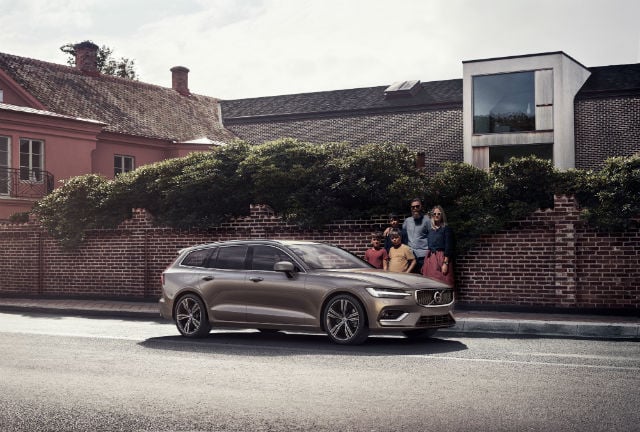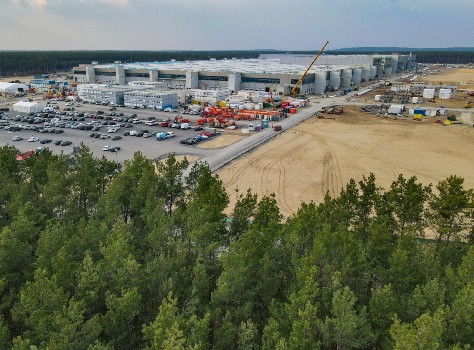When children are involved, it’s even more difficult, as youngsters are understandably worried about leaving their friends behind and starting a new school. When the move is not across town, but across oceans, things get really complicated.
But that’s not to say that moving abroad with your family is an insurmountable challenge. It just takes proper planning and a careful thinking through of the various issues that may arise.
The Local’s staff knows this as well as anyone. We’ve all left our home countries for a new life on foreign shores, and more than a fair share of us have done it with kids in tow. Here are our tips for how to make your international relocation as smooth and stress-free as possible.
Diplomats & Expats get a new Volvo at a very favourable price. Find out more.
1. Know what you’re getting into
Let’s get this out of the way up front: when you move to a new and unknown country, some things are just going to seem downright strange. Whether it’s the language, peculiar local foods, absurdly high tax rates or unexpected local laws, you’re going to run into all kinds of situations that differ wildly from your home country or your last destination.
 Keep your family safe with the new Volvo V60
Keep your family safe with the new Volvo V60
Luckily, we live in an interconnected and increasingly global world so the information you need is most likely just a few clicks away. Search Facebook for support groups of other internationals living in your new country and get direct help and information from those who came before you. Do advance research on the local customs, regulations, schools, and particular neighborhoods in your new city. In short, do as much background work as you can so that you’re not caught completely off guard upon arrival.
2. Get your paperwork in order
If you’re a diplomat, embassy staff member or professional expat moving abroad for a posting, your visa is probably all set with the help of your employer. But what about your spouse? Your children?
Countries differ in the requirements for accompanying family members, so be sure to get your employer’s help in ensuring that all of the proper paperwork is in order before you arrive.
There are also, inevitably, important admin tasks to take care of after the move.
For example, the first thing you will need to do if you're relocating to Spain is to get your NIE – Número de Identidad de Extranjero – Foreigners’ Identification number.
Before you can open a bank account, sign a work contract or rent or buy a flat, you need that number, whether you are an EU or non-EU resident.
You will also need it to pay tax, and once you have that number it will never expire.
Thankfully, the process is one of the more straightforward bureaucratic chores in Spain and can be applied for in person at your local Oficinas de Extranjeros, which can usually be found in a designated comisaría de policía. A list can be found here.
3. Pick the right set of wheels
With all of the high-stakes decisions that make up the process of relocating your family abroad, you might not think that your choice of car would be high on the list. But the right vehicle will end up playing a major role in both your relocation and the settling-in process.
Having your car situation settled before you arrive will pay off in a number of ways. You can use it to explore your new city, scope out potential neighbourhoods and schools and conveniently shop for those last-minute and forgotten items that arise even in the most well-planned moves.
One car you can count on to carry you safely through those first hectic weeks of arrival is the brand new V60 from Volvo. With this beautifully-designed estate car, there is plenty of space to pack in the entire family – and the kitchen sink if necessary! Behind the wheel of the V60, you’ll have smart technology at your fingertips, making getting around the new city a breeze. And while you’re still learning to navigate your new surroundings, you’ll feel comfortable knowing that you and your family are protected by a number of innovative safety features, like radar and camera technology that identify potential hazards.
 There's plenty of space for your family
There's plenty of space for your family
As an added bonus, Volvo Cars' Diplomat and Expat sales schemes means that you can have your new V60 shipped to a dealership near your new job posting location. And if you’re only planning on being there for a few years, it’s super easy to have the vehicle shipped to your next posting or to wherever you call home. You can choose from the full range of Volvo's models, including the V60, using Volvo Cars' Diplomat and Expat schemes.
Request a quote online and get a custom Volvo delivered to your next posting so you can comfortably remove this item from your list and focus on the rest.
4. Find the right school for your children
So, you’re moving to Paris. Or Stockholm. Or Berlin. Fine, but where within those cities are you going to live? A big factor in that decision will be the school options. Whether you plan to enrol your children in a local public school or an international institution catering to the families of foreign professionals, you’re going to want to do a lot of homework on this one. After all, your school-age children will spend almost as much time with their new classmates and teachers as they will with you.
Those aforementioned Facebook groups can be a great resource for finding the right school, as can relocation companies that specialize in helping international professionals – and their families – find their footing.
Request a quote on a custom Volvo V60
If possible, visit the schools and take a tour during term-time to really get a feel for a regular day. Prepare questions to ask teachers and parents of current students. Finding out whether the school is accredited and a member of a respected organisation like COBIS (the Council of British International Schools) or EARCOS (East Asia Regional Council of Schools) can also give you confidence that it maintains a high standard of teaching and meets certain codes of practice.
While you’re looking into the school options, make sure to gather your children’s current school records, immunization records and official documents like birth certificates because whatever school you pick is likely going to ask for these before your kids can enrol and start making new friends.
The best way to get a feel for potential schools is to visit them in person, if possible. Schedule as many meetings with teachers and administrators as you can and then fire up the V60’s T8 Twin Engine and hit up the schools on your list.
5. Househunt in advance
In close concert with finding the right school for your children is finding the right home, of course. You’ll want to find a place that suits your family’s needs while being conveniently located to both the kids’ school(s) and the grown-ups’ workplace. Long before you make the move, use local real estate sites to get a sense of what part of town you want to live in and an understanding of per-square-metre prices in the different areas.
Discover the benefits of Volvo Cars' Diplomat and Expat Schemes
If you're house hunting in France, brace yourself for a lot of paperwork. You will need a dossier of documents to prove that you are who you say you are and, in the case of renting, that you will be able to pay your landlord. In fact, in France, where bureaucracy is a major part of everyday life, you need a dossier for almost anything you do — except perhaps buying a baguette.
A tough choice for many relocating families is whether to make the commitment of buying a home in advance so that everyone can immediately settle in, or deciding to rent a temporary solution first so that you can be absolutely sure that the location you’ve decided on is best. There are no easy answers here, so do what is right for you and be sure to ask your employer if they can offer any help.
 The new Volvo V60
The new Volvo V60
6. Line up a job
While many folks move abroad because of a new job assignment, that certainly isn’t the case for everyone. If you and your family are relocating for other reasons, you’ll want to get a jump on your job search long before you arrive in your new home. There are many websites out there that specialize in international job postings and most countries will have dedicated websites with English-language job listings targeting foreign professionals. If you happen to be moving to one of the nine European countries in The Local’s network, a good place to start is our own job boards.
If you already have a job lined up, you may want to help your spouse with their employment search. An accompanying spouse often faces trepidation about following their partner’s career abroad and in many cases give up their own jobs in the process. Having a job in place for them can go a long way to making the entire family feel more secure about the big move.
Those moving to Germany for work should bear in mind that while a percentage of your monthly wage will be taken in order for you to access Germany's healthcare system, your spouse and children might not be covered. They'll also need to show proof of health insurance to get their residence permits, so take the time to find a healthcare package that covers the whole family before you touch down.
Find your nearest Volvo Cars' Diplomat and Expat Dealership
This article was produced by The Local Creative Studio and sponsored by Volvo Cars Diplomat Sales.



 Please whitelist us to continue reading.
Please whitelist us to continue reading.